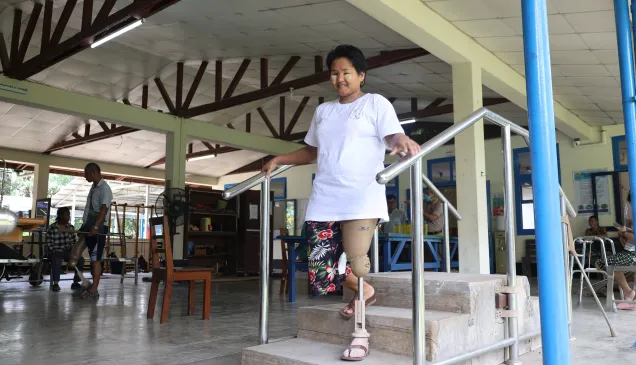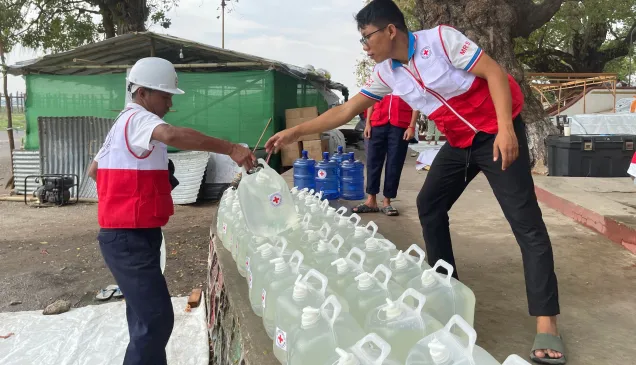Myanmar: Six months on in the Rakhine crisis
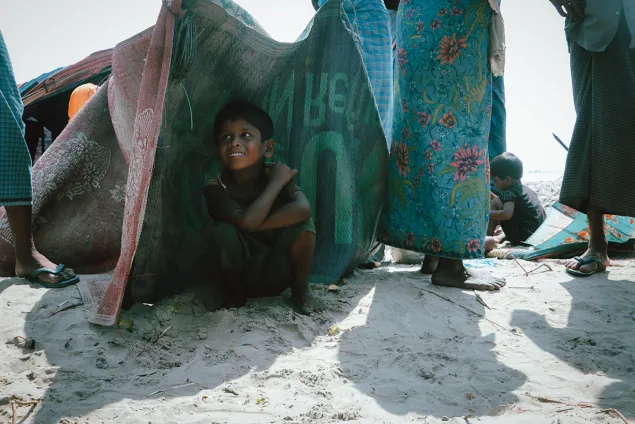
In Maungdaw, on the Alal Than Kyaw Beach, men, women and children wait for boats to cross to Bangladesh. They fashion temporary shelters from whatever materials they can find, including blankets, mats and tarpaulins.
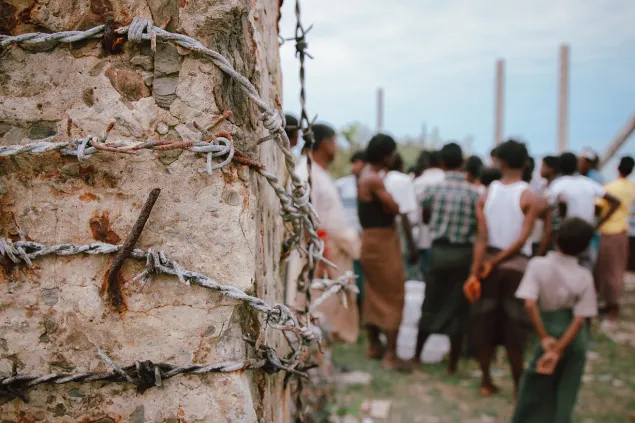
Providing basic needs
At another crossing point, at Pa Nyaung Pin Gyi beach, at the mouth of the Naf River, men queue for food and water in the hot sun. The Red Cross distributes food and water at several different locations for families waiting to cross the border.
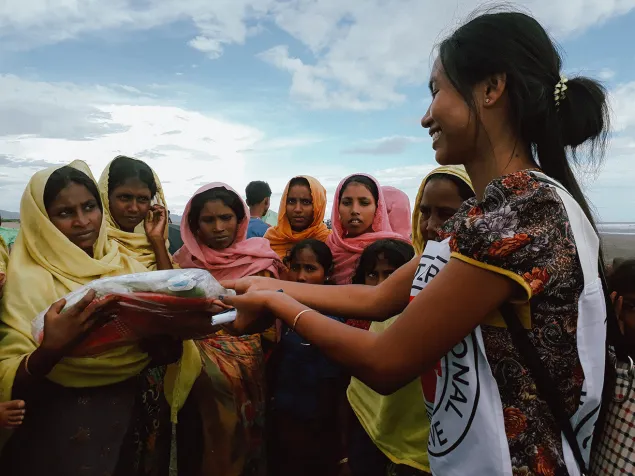
Safe delivery kits
We handed safe delivery kits to a group of pregnant women on Ale Than Kyaw beach, while they were waiting to cross to Bangladesh. The kits contain clean soap, plastic sheeting, bandages, gloves and information on the childbirth process and caring for a newborn.
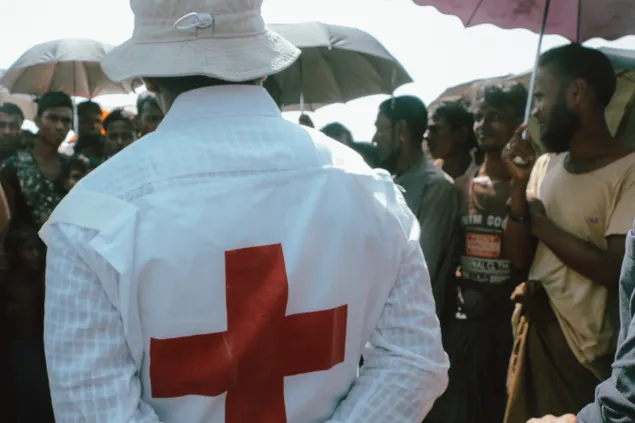
A sympathetic ear
Not all aid takes the form of tangible items. Sometimes what people need is someone to listen to them and their concerns. At the Alal Than Kyaw Beach in Maungdaw, a Red Cross staff member listens to the woes of the people.
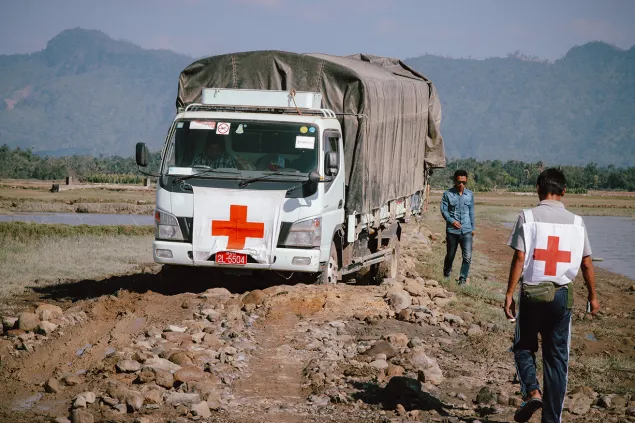
Going the extra mile
Delivering aid to remote areas doesn’t always go according to plan, especially if it rains. In the last six months, in northern Rakhine, more than 200 Red Cross staff have travelled by truck and car, boat or by foot to reach out to those most in need of help.
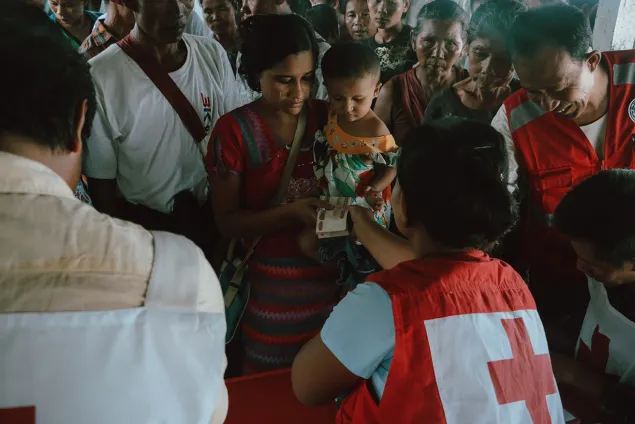
Going home
Help can come in many different forms, including unconditional cash grants. Here, a woman and child at Buthidaung Jetty, in Rakhine State, receive boat fare, so that they can return home after the cessation of violence.
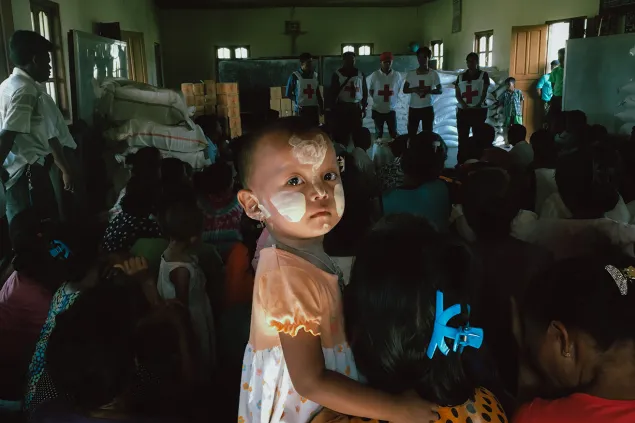
Trapped by violence
This child was one of the hundreds of people trapped inside Baw Tu Lar village because of the surrounding conflict. We distributed food and hygiene kits to her family and many others who didn’t have food because the markets were closed.
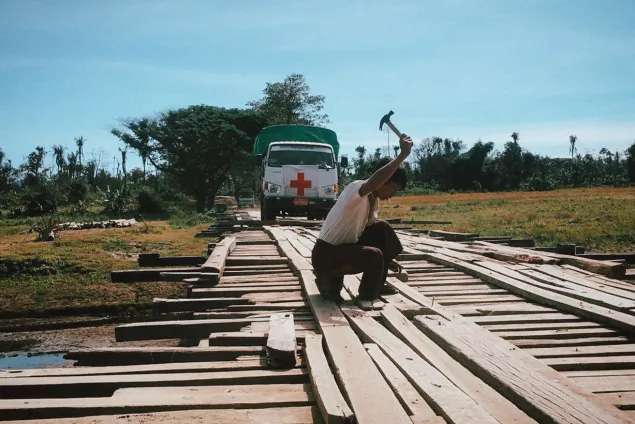
A helping hand
A man from the local community fixes a bridge on the way to Min Kha Maung village, Rakhine State. He was kind enough to help our trucks get through. It is common for community members to take an active role in improving their infrastructure and living conditions.
On 25 August 2017, a spate of violence in northern Rakhine State sparked an exodus of 688,000 people fleeing across the border to neighbouring Bangladesh. They crossed by land, river and sea, taking with them their most precious possessions – in some cases carrying family members who could not walk themselves.
No one could have foreseen the scale of this crisis. The violence has had a profound impact on all those living in northern Rakhine State. Markets have been disrupted, access to schools and health clinics has been cut, livelihoods have been lost and people have been displaced. Villages have been burned down to the ground. The fabric of several communities has been changed forever.
During this time, the Red Cross Movement has led the humanitarian response providing more than 200,000 people with food, water, health care, cash and other aid. More than 200 staff members have travelled by foot, car, truck and boat to reach the remotest of communities. The need for humanitarian help still remains very high.
Some areas are now relatively calm and stable but others remain tense. People are still fleeing and those left behind are anxious and uncertain about their future.
The Red Cross Movement is committed to assisting the community in the long term, helping it recover from the events of the last six months.


